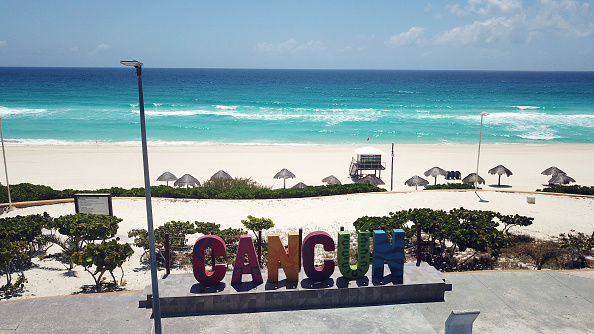GREECE’S EXCLUSIVE TRAVELLERS LIST
Out of most of the world’s tourist destinations, Greece has probably come up with the most scientific approach towards restarting the tourism industry. On May 29, the Greek Ministry for Tourism announced that it had studied the epidemiological profiles of countries and from that survey it came up with a list of 29 countries from which it will allow travellers from. Most, if not all, of the countries that made the cut were ones that took swift actions towards tackling the pandemic, thus keeping infection/death rates low. Among these countries are South Korea, Japan, Germany, Austria, Australia, New Zealand, Lebanon, Israel and Malta. Unsurprisingly, countries with high infection and death rates such as Italy and Spain have not been included in the list in spite of being Schengen countries. Starting from June 15, travellers from the 29 countries can come into Greece and move freely without any quarantines or restrictions, and it is hoped that once infection rates start going down in other countries, Greece will start adding more countries to that exclusive list.
ITALY’S MORE LAISSEZ FAIRE APPROACH
During the early days of the pandemic, Italy became Europe’s epicentre for the virus. In spite of Prime Minister Giuseppe Conte’s early decision to enforce a nationwide lockdown on March 9, the country still suffered from 34,000 deaths and 236 thousand cases. However, now that infection rates have dramatically gone down, the government is ready to reopen the popular tourist destination just in time for the summer holidays. To do this, the Italian government has decided to open up to travellers coming from the EU and the Schengen Area, as tourists from such countries will be able to arrive at Italy and not undergo a 14-day quarantine. June is set to be a big month for Italy, as bars, museums, galleries and cinemas will be set to reopen, and tourists will easily find many activities to do and many places to go to. However, the government did say that it would reapply restrictions again if infection rates start to rise again, as only time will tell if this laissez faire approach to tourism will work during these crucial next months. The island of Sicily, which heavily relies on tourism, has taken further steps to encourage travellers to bask in its beaches. The island has decided to give travellers incentives like offering reduced hotel accommodation costs, as the scheme is offering travellers one night of a three-night trip for free, or two nights of a six-day trip. The scheme has also offered tourists with vouchers for cultural and heritage sights.
CYPRUS GOES THE EXTRA MILE
Fifteen per cent of Cyprus’s GDP comes from the tourism industry, as such the country will be eager to re-welcome visitors after a nearly 3 month lockdown. In spite of the country’s massive need for tourists, it is still not taking a relaxed approach to reopening the country. Instead, it has taken a similar approach to that of Greece’s and published a list of epidemiologically fit countries, which it will welcome travellers from. Starting from June 9, Cyprus will begin phase one of reopening the tourism industry, during said phase travllers from 13 countries will be allowed within the country. This exclusive list includes Greece, Germany, Austria and Israel. Travellers from these countries will have to undergo a COVID-19 test three days prior to their travel date, and then provide proof of a negative result upon arrival. Those who are unable to provide this proof will not be allowed in Cyprus. June 20 will see the beginning of phase two, by which those from the initial thirteen countries will no longer have to provide a health certificate, however Cyprus will add six more countries to the exclusive list and travellers from those six countries will need to provide proof of health upon arrival. If tourists catch the coronavirus during their stays in Cyprus, then the Cypriot government will cover their accommodation and hospital costs.
CANCUN HOPES TO WOO TOURISTS
Mexico is home to some of the world’s most popular tourist hotspots, as the state of Quintana Roo is home to the scenic beaches of Cancun and Playa Del. Mexico has implemented a “traffic light” strategy towards COVID19, as “red states” had strict restrictions placed on it, while “orange states” could have some restrictions lifted. Recently, Quintana Roo moved from red to orange and as a result, the state had permission to kick-start plans to reopen its popular tourists destinations for travellers. Quintana Roo is now allowed to reopen hotels, hotel beaches, restaurants, historic sites and theme parks, however these facilities are only allowed to operate at a 30 per cent capacity. Moreover, other popular tourist destinations such as public beaches and nightclubs will not be allowed to reopen. Hotels in this area are also set to launch the #Come2MexicanCaribbean campaign which will offer travellers up to a 50 per cent discount on hotel accommodation.

EGYPT’S SLOW AND STEADY APPROACH
Egypt is still enforcing strict travel restrictions for international travellers, as most flights to Cairo and other airports have been halted since March. While the North African country is still not allowing international tourists, it is looking to restart its domestic tourism industry. To do this, the Ministry of Tourism has given a set of requirements for hotels, such requirements include operating at a 25 per cent capacity, regularly sterilizing hotel rooms, lobbies and luggage, regular temperature checks for guests, requiring guests and staff to maintain a safe social distance, requiring staff to wear face masks and even using only disposal pens during check in. If such a measured approach works, then this might serve as a prototype of how to welcome international tourists once travel restrictions are lifted in Egypt.







